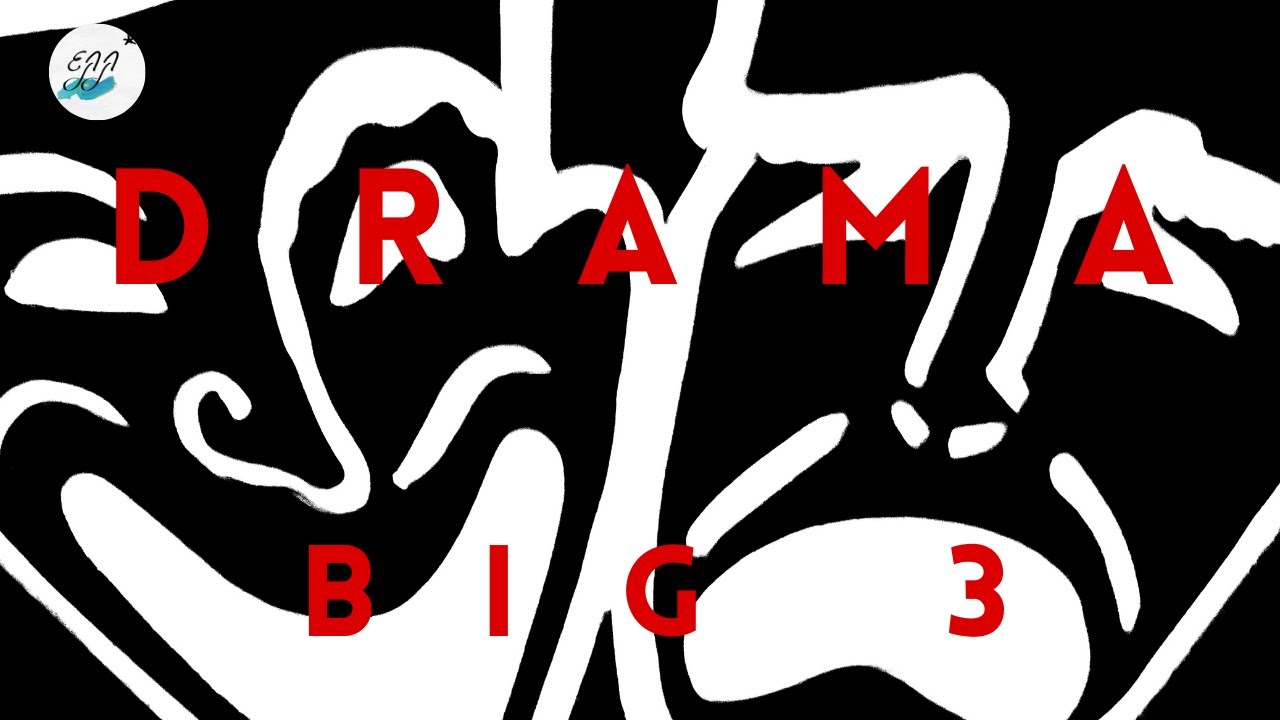Antigone | Book summary in English (Animated)
Summary
TLDRThis episode offers a concise summary of Sophocles' tragedy *Antigone*. The play, part of the Theban trilogy, explores themes like morality, law, family, and divine justice. Antigone defies King Creon by burying her brother Polynices, leading to tragic consequences, including the deaths of Antigone, Creon’s son Haemon, and his wife Eurydice. The play critiques the conflict between divine law and human authority, leaving Creon broken and defeated. The episode also highlights Sophocles' innovations in Greek drama and his role as a celebrated playwright of ancient Athens.
Takeaways
- 📚 Antigone is one of the most famous plays by Sophocles and part of the 'Theban plays' trilogy, alongside Oedipus Rex and Oedipus at Colonus.
- ⚖️ The play explores the morality of law and order, emphasizing the tension between divine law and man-made laws.
- 👑 The main themes of Antigone include love, family, power, law and order, mortality, divinity, and sacrifice.
- 🏛️ Sophocles was one of the greatest tragedy writers of ancient Greece, known for adding a third actor to plays and his innovation in dramatic structure.
- ⚔️ The play centers around the aftermath of a civil war in Thebes, where two brothers, Eteocles and Polynices, kill each other in battle.
- ❌ Creon, the new king, honors Eteocles and condemns Polynices, refusing him a proper burial as punishment for betraying Thebes.
- 🕊️ Antigone defies Creon’s orders by burying her brother Polynices, invoking divine law over human law.
- 💔 Haemon, Creon’s son and Antigone’s fiancé, tries to reason with his father but eventually turns against him when Creon refuses to show mercy.
- 🔮 The blind prophet Tiresias warns Creon that the gods are angry, leading to a series of tragic events including the deaths of Antigone, Haemon, and Creon’s wife Eurydice.
- 😔 In the end, Creon is left broken and defeated, having caused the destruction of his family and kingdom due to his stubbornness and rigid adherence to the law.
Q & A
What is Antigone about at its core?
-Antigone is an essay on the morality of law and order, exploring the tension between divine law and man-made law. It presents the protagonist's defense of divine law and highlights the grey areas within human laws.
Who wrote Antigone, and when was it likely written?
-Antigone was written by Sophocles, one of ancient Greece's greatest tragedy writers. It is believed to have been written towards the later years of his life.
What are the major themes of Antigone?
-The main themes of Antigone are love, family, power, law and order, mortality, divinity, and sacrifice.
What is the significance of the Theban plays, and which plays are included in this collection?
-The Theban plays are a trilogy by Sophocles, consisting of Oedipus Rex, Oedipus at Colonus, and Antigone. They are significant as they explore the fate of the royal family of Thebes and highlight key themes in Greek tragedy.
What was Creon's decree after the deaths of Eteocles and Polynices?
-Creon, the new king of Thebes, decreed that Eteocles, who defended the city, would be honored, while Polynices, who attacked Thebes, would be left unburied as punishment, denying him funeral rites.
How does Antigone react to Creon's order, and what does her sister Ismene do?
-Antigone defies Creon's order and buries her brother Polynices, believing it is her duty. Ismene, fearful of the king’s wrath, refuses to help Antigone but later tries to share the blame when Antigone is caught.
What is the outcome of Antigone’s defiance of Creon?
-Antigone is arrested and sentenced to be buried alive in a cave. Despite warnings from the blind prophet Tiresias and others, Creon does not reverse his decision until it is too late, and Antigone takes her own life.
How does Haemon, Creon's son, react to Antigone's punishment?
-Haemon, who is engaged to Antigone, first tries to reason with his father to spare her. However, their conversation escalates into an argument, and Haemon vows to never see Creon again. Later, he takes his own life after discovering Antigone’s death.
What is the role of Tiresias in the play?
-Tiresias, the blind prophet, warns Creon that the gods are angry with him for his treatment of Polynices and Antigone. He prophesies that Creon will suffer personal tragedy if he doesn’t reverse his decision, which ultimately comes true.
What happens to Creon by the end of the play?
-By the end of the play, Creon is devastated by the deaths of Antigone, his son Haemon, and his wife Eurydice, who takes her own life after learning of Haemon’s death. Creon is left broken, having realized too late the consequences of his decisions.
Outlines

Dieser Bereich ist nur für Premium-Benutzer verfügbar. Bitte führen Sie ein Upgrade durch, um auf diesen Abschnitt zuzugreifen.
Upgrade durchführenMindmap

Dieser Bereich ist nur für Premium-Benutzer verfügbar. Bitte führen Sie ein Upgrade durch, um auf diesen Abschnitt zuzugreifen.
Upgrade durchführenKeywords

Dieser Bereich ist nur für Premium-Benutzer verfügbar. Bitte führen Sie ein Upgrade durch, um auf diesen Abschnitt zuzugreifen.
Upgrade durchführenHighlights

Dieser Bereich ist nur für Premium-Benutzer verfügbar. Bitte führen Sie ein Upgrade durch, um auf diesen Abschnitt zuzugreifen.
Upgrade durchführenTranscripts

Dieser Bereich ist nur für Premium-Benutzer verfügbar. Bitte führen Sie ein Upgrade durch, um auf diesen Abschnitt zuzugreifen.
Upgrade durchführenWeitere ähnliche Videos ansehen

ANTIGONE di Sofocle in 4 minuti

Antigone by Sophocles | Summary & Analysis

Greek Drama Ep.2: Introducing the Greek Tragedians (Euripides, Aeschylus, Sophocles)

Law and Justice - Antigone and the Defense of Tradition - 6.4 Antigone

GED117-Week 1 (2 of 2)

INTRODUÇÃO: Diferenças do Jusnaturalismo e Juspositivismo
5.0 / 5 (0 votes)
